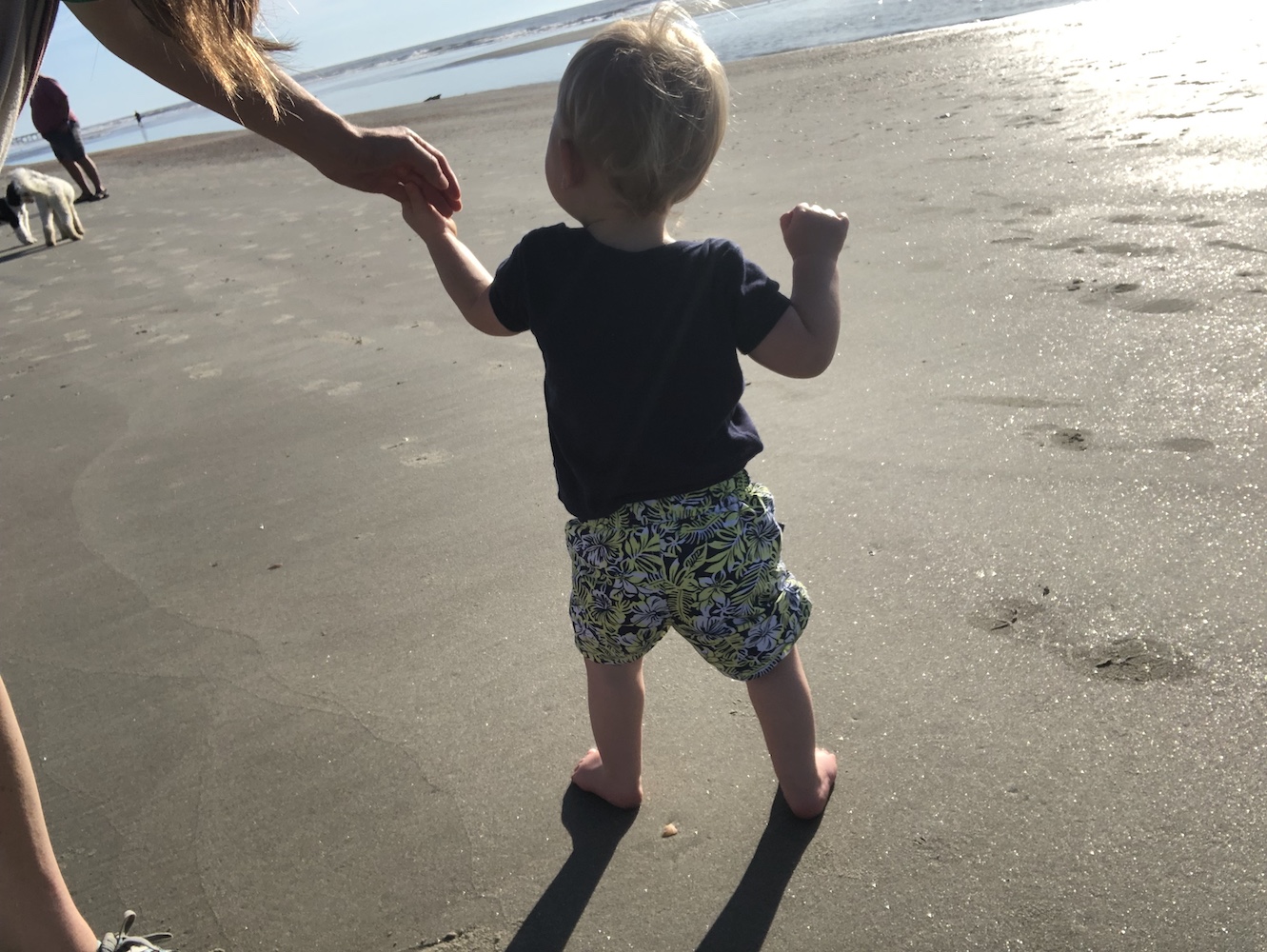
My nearly 3-year-old has an unusual body. He has lifelong colorectal and bladder differences from being born with three rare diseases and a disability. He's also a determined, mischievous, and creative child whom I love very much.
As I parent him, there have been many days when I've experienced both big highs and big lows and at first that surprised me—how could I feel such opposing feelings at once?
For instance, the night before he had a spine detethering surgery at 13 months old, he clapped for the first time. The apprehension I felt over his fourth major surgery was now accompanied by pure joy watching his grinning face as he clapped his chubby little hands together.
And the day that a South Carolina specialist told me the upsetting news that my then 18-month-old child had a neurogenic bladder was the same day that he walked at the beach for the first time. Hands held up for balance, he took clunky, unsteady steps in the soft brown sand as I cheered him on, captivated by his grit and exuberance.
Now I'm no longer surprised when worry and joy appear side-by-side. That's the journey. These are other lessons I've learned from parenting my rare child.
It\’s often up to parents/guardians to research and advocate for their child.
When a child has a rare disease, most physicians won't know enough to help with all aspects of their condition or care needs. This is understandable since a rare disease is a condition that affects fewer than 200,000 people in the United States, and there are at least 7,000 of these diseases. Thus, it's often up to parents/guardians to do their own research, to read medical journals and news articles, to ask people in support groups for advice, and to find specialists. It can be exhausting, but it's also often critical to helping our children.
Finding the right specialist can improve a child\’s health outlook, quality of life, and even extend their life.
It took some time, but we found colorectal and urology specialists who have the right knowledge to help our child. I learned these specialists see many patients who are suffering from prior misdiagnoses or a poor surgery by a non-specialized surgeon. It made me appreciate how crucial specialists can be to ensuring the proper care of rare bodies. Sometimes, sadly, insurance isn't flexible about letting people go out of state to find specialists and they should be. It can make a difference. The urology specialist we saw in South Carolina saved my child's single kidney by finally being the one to diagnosis his bladder and provide the right interventions.
Joining a support group can be immensely useful.
Sometimes it can be lonely caring for a child with a rare disease because your family, friends, and community may have no idea what you're going through to keep your child functioning and healthy. Finding a support group can help you feel less alone. It can also be a fantastic resource. The Facebook support groups I've joined have caring people who respond swiftly and compassionately to other members' questions. The Pull-Thru Network also offers conferences and camps for people with colorectal issues like my child's.
There may be new surprises as our children grow that we must learn to accept.
The full diagnoses may not be known at one time for children with rare diseases. Instead, they may be revealed in waves, and with the new revelations may come new illnesses, hospitalizations, and interventions. For the first two years of my child's life, I kept thinking: If we can just get to X surgery or figure out Y issues, then he'll be OK. But there were always new surprises. After his tenth surgery in January 2021 and what felt like his millionth ER visit the month prior, I realized I had to accept this as his normal. Changing my mindset is helping me cope and be a stronger parent for him.
Making time for yourself is crucial.
When you're in crisis taking care of your child or when you're spending time in hospitals and medical offices, managing daily care routines and calling specialists, insurance companies, and pharmacies, on top of everything else in your life, it can be challenging to make time for yourself. There are certainly days when it may not be possible. On regular days, I find that getting outside for 30 to 45 minutes to exercise after caring for my child all night helps my mood immensely and I come back calmer and ready for the day. Whatever recharges you, try to build time into your day for it whenever possible. It can help you maintain stamina for your care duties and give you time when you are just you—not someone's parent or employee or partner.
Holly Kearl is an author, the founder of Stop Street Harassment, and a community manager for the Aspen Institute.
